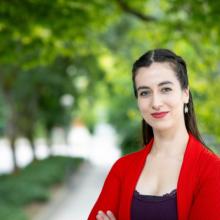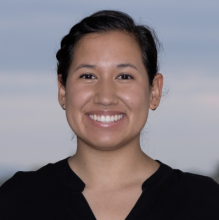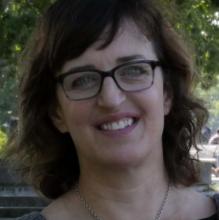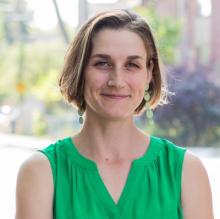Helina Jolly collaborates with MS Swaminathan Research Foundation to examine the values of forest ecosystem functions among the Adivasis (indigenous communities in India) of Wayanad forests through a gender lens. Her research seeks to provide the Adivasi women, their long overdue recognition for managing natural resources and community well-being.
Research Description
In the pursuit of achieving the Sustainable Development Goals by 2030 placing the utmost significance on policies related to women empowerment, indigenous community protection and environmental conservation. Thus, there is a fundamental policy demand to address the limitations in understanding the relationship of tribal women and ecosystem functions. Guided by various social roles, responsibilities, resource access and decision-making rights, there is known to have gendered perceptions and values towards the local ecosystem services. The study aims to: (1) Understand the differences in perceptions of ecosystem services among the indigenous men and women living in Kerala’s biodiverse rural regions. (2) Examine how gendered perceptions influence the valuation of ecosystem services among these communities. Developing an understanding of how vulnerable stakeholders, especially women, view and respond to the challenge of environmental degradation, will help develop equitable and sustainable solutions to ecological crises we face around the world.
What does being a Public Scholar mean to you?
Being a public scholar means developing academic pursuits through cooperative methods, creating a space for mutual learning between stakeholders and researchers. It also means delivering research that aims to reduce the gap amongst the local communities, policy makers, and scientists through deliberative and participatory methods. Also, being a public scholar is an opportunity to learn and grow with a cohort of motivated and intellectually stimulated individuals researching for a greater good of the public.
In what ways do you think the PhD experience can be re-imagined with the Public Scholars Initiative?
PSI program brings in wholesomeness into academic research programs. It encourages scholars to embrace unconventional approaches and popularizes the effectiveness of cooperative study in creating and dispersing knowledge as public good. The program supports researchers to expand their professional pursuits beyond conservative teaching. It encourages researchers to propose and conduct studies that promote engagement with local communities and distribution of research results beyond peer reviewed journals. PSI provides a scholastic experience that reinstates my belief in the democracy of research studies i.e. research of the people, by the people, and for the people.
How do you envision connecting your PhD work with broader career possibilities?
Having worked with bilateral agencies, government departments, research institutes, NGOs and think tanks focused on South Asia, I have garnered field experience and networks in the field to support my doctoral work. A PhD degree will help me refine my research skills and academic training and would add value in advancing my post-degree career goals as a development practitioner that liaisons between academics and decision makers in academic and non-academic spaces.
How does your research engage with the larger community and social partners?
I am fortunate to have MS Swaminathan Research Foundation (MSSRF), a well-known think-tank founded by Dr. MS Swaminathan (known for his leading role in India's green revolution) as my local partner agency. MSSRF has a long and well-established working relationship with the Adivasi communities of Wayanad. It follows a pro-poor, pro-women and pro nature approach to address practical problems faced by the rural population. Collaboration with MSSRF would benefit not only my doctoral degree targets but also enhance my long-term professional goals. Furthermore, Foundation's association and engagement with central and state government bodies would provide my study suitable platform to disseminate the results and generate beneficial policy impacts.
Why did you decide to pursue a graduate degree?
During last five years of my work in India, I was fortunate to interact with several women from various local communities passionate and committed towards environmental conservation. These experiences drew me to consider the possibility of a strong positive correlation between ecosystem services and gender. I felt a doctoral degree in this topic will provide me with the sufficient intellectual space and network to develop this hypothesis into a policy contribution.
Why did you choose to come to British Columbia and study at UBC?
Having multidisciplinary academic training in natural sciences, environmental economics and policy regulation, I realized that research approach at the Institute for Resources, Environment and Sustainability suits my academic ambition very well. Furthermore, University of British Columbia has an inspiring and accomplished record of innovative works in the field of environmental studies and the offers exciting field work opportunities and interdisciplinary research prospects.
Being a public scholar means developing academic pursuits through cooperative methods, creating a space for mutual learning between stakeholders and researchers. It also means delivering research that aims to reduce the gap amongst the local communities, policy makers, and scientists through deliberative and participatory methods.




